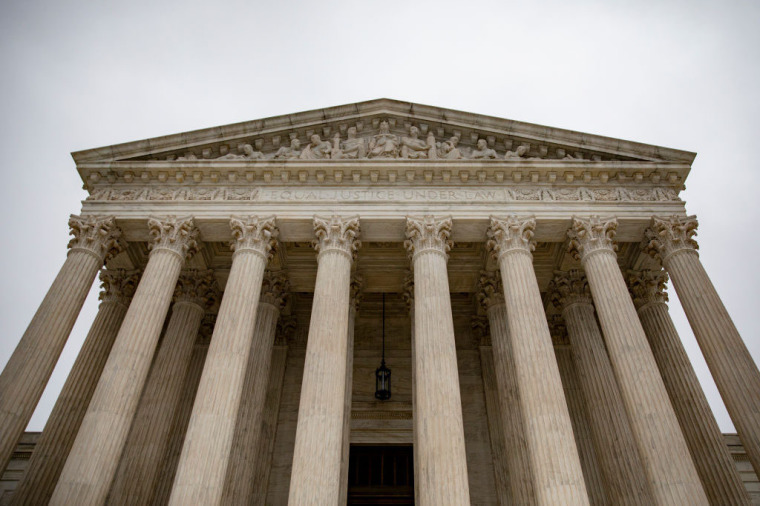Supreme Court rejects Christian school’s request to uphold firing


The United States Supreme Court has declined to hear the appeal of a Colorado-based K-12 Christian school accused of wrongfully firing a Bible teacher because he addressed alleged incidents of racism at a student gathering.
In an orders list released Monday morning, the Supreme Court denied without comment an appeal in the case of Faith Bible Chapel International v. Tucker, and the linked case of Synod of Bishops of the Russian Orthodox Church Outside of Russia v. Belya.
Faith Bible Christian International of Arvada, which does business as Faith Christian Academy, argued in the litigation that it had the right to fire former chaplain Gregg Tucker over his remarks via the First Amendment’s “ministerial exception.”
According to the ministerial exception, a church or faith-based entity can be immune from legal prosecution for deciding to fire a church employee on the basis of religious reasons.
The denial of certiorari by the high court means that a lower court ruling against the Christian school by a circuit court panel, which rejected the school’s claim to ministerial exception, will be allowed to stand.
Americans United for Separation of Church and State, which is representing Tucker and Belya, celebrated the Supreme Court rejection of both cases in a press release emailed to supporters.
“Religious freedom is not a license to harm others or prevent people from seeking justice in courts of law,” said President and CEO Rachel Laser in the emailed press release. “These cases are far from over, but Gregg Tucker and Father Alexander Belya now have a chance to vindicate their rights.”
In January 2018, chaplain and teacher Gregg Tucker led a chapel service for students on the topic of race that school officials believed was too political and faulted Tucker for how he handled the ensuing debate over the service.
Tucker filed a complaint against Faith Christian, accusing the school of violating Title VII of the Civil Rights Act of 1964 and Colorado law, believing that his firing had to do with his decision to talk about incidents of racism during the assembly.
Although Faith Christian argued that it was exempted from prosecution via the ministerial exception, a district court ruled against their claim and then a three-judge panel of the U.S. Court of Appeals for the 10th Circuit ruled 2-1 in June of last year to uphold the lower court decision.
Circuit Judge David M. Ebel, a Reagan appointee, authored the majority opinion, concluding that the Christian school “has not adequately developed a factual record for asserting the church autonomy defense.”
“Faith Christian asserts that the ‘ministerial exception’ protects religious employers not just from liability based on its minister’s employment discrimination claims, but also from the burden of litigating such claims, and it is this protection against the burdens of litigation that will be lost without an immediate appeal,” wrote Ebel.
“We reject that argument because Faith Christian is incorrect that the ‘ministerial exception’ immunizes a religious employer from suit on employment discrimination claims.”
The church filed a request to have the whole 10th Circuit rehear the case. While the appeals court rejected that request in an order released last November, four of the judges said they would have granted the rehearing.
Represented by the religious liberty legal group Becket Law, the church filed a petition before the Supreme Court in February, arguing that the firing of Tucker was “internal dispute” that was “no business of the judiciary or civil authorities.”
“The Free Exercise and Establishment Clauses of the First Amendment categorically bar judicial inquiry and interference in religious leadership disputes,” read the petition.
“Once Respondent admitted that he accepted the role of Chaplain and provided spiritual guidance and counseling to students, the case should have been dismissed without allowing inquiry into the church’s beliefs or its chaplaincy decisions.”
Free Religious Freedom Updates
Join thousands of others to get the FREEDOM POST newsletter for free, sent twice a week from The Christian Post.




